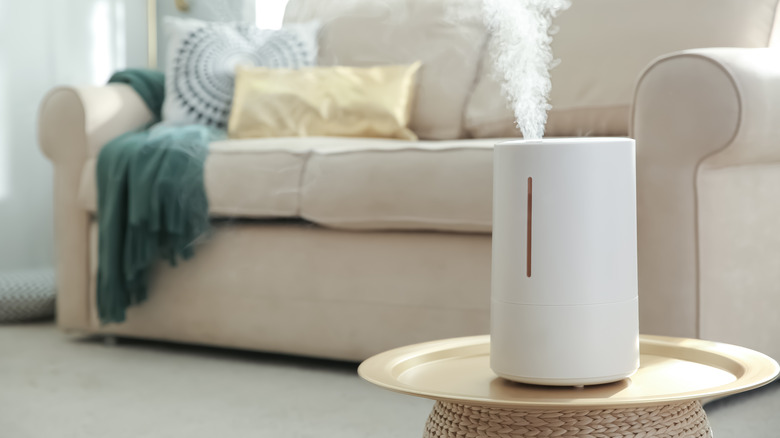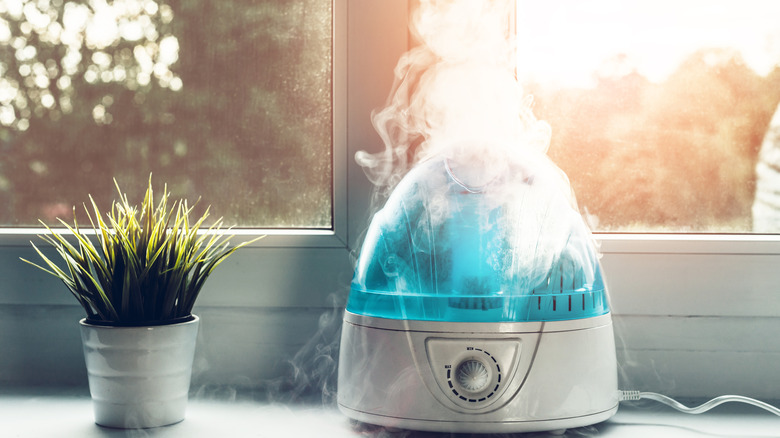When You Start Using A Humidifier, This Is What Happens To Your Body
If you live in a dry climate, you're likely familiar with the effects the harsh winter months can have on your body. Bloody noses, dry skin, and sinus irritation or coughing are just a few of the symptoms you may experience in indoor air that lacks humidity.
A humidifier, which adds moisture in the air by emitting water vapor or steam and increasing humidity, can be your saving grace. From central humidifiers that are built into your air conditioning system, to steam vaporizers, to ultrasonic humidifiers, these devices can get your home to your desired humidity. Typically, humidity levels in your home should be between 30 percent and 50 percent, and no more than 60 percent (via Mayo Clinic).
You should start seeing the benefits right when you start using your humidifier of choice. Humidifiers should improve your skin conditions almost immediately, especially in the winter months where blowing heat is circulating throughout your home.
Risks of using a humidifier in your home
Studies have also shown that using a humidifier can reduce your risk of getting the flu, make your coughs less dry by improving respiratory issues like allergies and asthma, and even reduce snoring (via Medical News Today).
It all sounds like good news, right? Humidifiers really are great, so long as you keep your humidifier clean. Dirty water in your humidifier reservoir can breed mold and bacteria quickly, potentially causing even more issues with allergies and asthma than you started with, according to Medical News Today. For this reason, it is vital to clean your humidifier frequently using the manufacturer's recommendations, as well as avoiding the use of hard water or tap water in your unit.
You also want to be careful about inserting too much humidity into your home. Excessive levels can trigger mold, bacteria, and dust mites that can worsen your symptoms, according to the Mayo Clinic — not to mention also making your house feel damp and stuffy.


